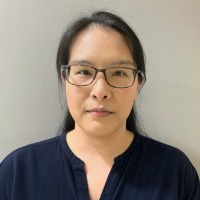- This topic has 20 replies, 13 voices, and was last updated 2 years, 12 months ago by
 Siriphak Pongthai.
Siriphak Pongthai.
-
AuthorPosts
-
-
2023-01-08 at 6:57 pm #39429
 Wirichada Pan-ngumKeymaster
Wirichada Pan-ngumKeymasterPlease share about the work towards the UHC scheme in your country, what works and what needs to be done to make it work, strength and weakness, for example. (10 marks)
———— Deadline 6 February 2023 Pls reply before ————-
-
2023-01-14 at 12:07 pm #39468
 Zarni Lynn KyawParticipant
Zarni Lynn KyawParticipantIn order to not self-plagiarize, please allow me to share two documents that we developed around this topic and please let me summarize in the following paragraphs and I also added a section for after the military coup. You can also find the two documents here. (1), (2)
Myanmar has made significant progress towards achieving Universal Health Coverage (UHC) in recent years. The government has implemented several policies and programs aimed at increasing access to healthcare for the population, including the National Health Plan (NHP) and the Community-Based Health Insurance (CBHI) scheme.
One of the strengths of the UHC scheme in Myanmar is the focus on community-based approaches, which have been successful in increasing access to healthcare for hard-to-reach and vulnerable populations. The CBHI scheme, for example, has been successful in reaching remote and underserved areas, and has been credited with increasing access to healthcare for low-income and vulnerable populations.
However, the report also highlights several challenges that need to be addressed in order to achieve UHC in Myanmar. One major challenge is the lack of financial protection for the population, as many people still cannot afford the costs of healthcare. The report suggests increasing the coverage and subsidies provided by the CBHI scheme, and the introduction of a national health financing strategy to address this issue.
Another challenge is the limited availability of and access to quality healthcare services, particularly in remote and underserved areas. We recommended strengthening the primary healthcare system and improving the distribution of healthcare facilities and personnel to address this issue.
In addition, there is a lack of awareness among the population about the importance of health insurance and how to access health services, which limits the effectiveness of the UHC scheme. We recommended increasing awareness and education about health insurance and health services to address this issue.
Myanmar has made significant progress towards achieving UHC, but still faces several challenges that need to be addressed to fully achieve it. We recommended increasing financial protection for the population, strengthening the primary healthcare system, improving access to quality healthcare services, and increasing awareness and education about health insurance and health services.
The military coup in Myanmar on February 1, 2021, has resulted in a significant disruption to the progress made towards Universal Health Coverage (UHC) in the country. The coup has led to a breakdown in the political and economic stability of the country, which has hindered the ability of the government to continue implementing policies and programs aimed at achieving UHC.
It’s reported that the coup has caused a significant disruption to the healthcare system, as many healthcare providers have been arrested or gone into hiding, and many health clinics and hospitals have been closed. Additionally, the coup has caused a significant disruption to the economy, which has made it difficult for many people to afford the costs of healthcare.
The situation in Myanmar is rapidly changing, and it’s hard to predict the long-term impact of the coup on the UHC scheme. However, the coup has created a difficult environment for the government to continue its efforts towards UHC, and it is likely that the progress made towards UHC in recent years may be slowed or even reversed.
It’s important to note that the information regarding the post-coup situation in Myanmar is constantly evolving and changing. The political and economic instability can affect not only the healthcare system but also the entire society.
-
2023-02-03 at 1:13 pm #39614
 Boonyarat KanjanapongpornParticipant
Boonyarat KanjanapongpornParticipantThank you for sharing the information. In this module, I have read your discussions which inform the curtail of leader direction in many healthcare challenge situations. Leader team which is effectively manage the need and problem, could drive healthcare forward and reduce the argument.
-
-
2023-01-16 at 1:40 pm #39501
 PREUT ASSAWAWORRARITParticipant
PREUT ASSAWAWORRARITParticipantThe Universal Health Coverage (UHC) scheme has been a game changer in healthcare coverage for Thai citizens since about two decades ago. It improves access to hospitals, high-cost medications and treatment, hospitalization, etc. The UHC scheme includes Universal Coverage for Emergency Patients (UCEP). The UCEP is a project that allows patients with emergency conditions to access the nearest hospital and receive proper treatment. Such emergency conditions include unconsciousness, respiratory failure, circulatory shock, sudden cardiac chest pain, stroke, status epilepticus, and other life-threatening conditions. The cost of treatment will be reimbursed by the UHC scheme. After the patients present at the hospital and the physician finds the abovementioned emergency conditions, a hospital officer will contact with the UCEP center for the approval.
The strength of the UCEP project is to provide easy access to a hospital if patients have emergency conditions. These diseases need timely and appropriate medication or intervention so that patients have good outcomes. Delayed treatment can lead to morbidity and mortality.
The UCEP project also faces some limitations. First, it covers the cost of treatment that occurs only the first 72 hours after admission. After that, patients are responsible for the treatment cost or they have to contact the primary hospital to make a decision whether the patient’s disease of the patient exceeds competency of the primary hospital or not. In addition, some patients admitted in a private hospital with UCEP criteria have to seek a public hospital to transfer if their conditions need to be hospitalized more than 72 hours. Otherwise, they must pay for all treatment cost which is expensive for the private hospital. However, referral to a public hospital may not be possible if the destination hospital is experiencing capacity overload. Second, some high-cost treatment is not available in some hospitals because the UHC scheme reimburses as the disease-related group. This means that patients cannot receive any high-cost medical instruments.
-
2023-01-29 at 2:57 pm #39580
 Kansiri ApinantanakulParticipant
Kansiri ApinantanakulParticipantHi All,
Thank you Dr. Preut for sharing the interesting project on UCEP. This program is crucial and benefit to vast Thailand population including my family.
I would like to bring the attention to the UCEP and the implementation in COVID-19 era as well.
UCEP stands for Universal Coverage for Emergency Patients. This project was implemented in 2017 to ensure that the critical patient receive the timely proper management regardless of their reimbursement capability.
Thailand faced to COVID-19 pandemic and the COVID-19 was included in UCEP project (COVID UCEP) in Apr 2020 as the responsive action to the large number of patients in Thailand.What works:
I think the implement of UCEP COVID is quite good idea to ensure that patient could access the medical care in timely manner especially in the beginning of the era of COVID-19 pandemic that we did not know much about the disease prognosis, and we still did not have adequate vaccination in population level.What need to be done to make it works:
I also heard that in 2020 when the COVID UCEP had been implemented. Even patient could receive medical care for free, but it is very difficult to contact NHSO representative or hospitals to request for admission or other type of medical care due to the high volume of patients.
During that time, Many Thai HCP volunteer to screen and support patient remotely (using line group) and facilitate to hospital admission processes.Strength(s):
In my opinion, this policy is considered good responsive action to the pandemic situation. Apart from that, the policy has been adapted corresponded to the pandemic situation. Currently UCEP COVID is no longer effective in Thailand, but the COVID-19 patient still could access the medical care via different channels.Weakness(s):
The weakness of this project is the cost of treatment that need to be paid by the government which considered high. Apart from that, the implement of COVID UCEP lead to the workload of HCPs at each hospital since the HCPs recruiting is limited during that time. -
2023-01-29 at 4:02 pm #39583
 Boonyarat KanjanapongpornParticipant
Boonyarat KanjanapongpornParticipantUniversal Coverage Scheme (UCS) of Thailand, also known as 30 THB. coverage has been implemented since 2002 and gave many benefits to the population. Because of the variety of programs offered, including cancer, kidney failure, heart diseases and others, people could access the effective health care when needed without the burden of personal costs. This would reduce bankruptcy from high-cost diseases and decrease inequity in healthcare assessments from financial status and distance. However, because of the complexity of the programs, there is still room for improvement.
Firstly, Seamless treatment and reimbursement, as K.Preut mentioned above, would increase the convenience and reduce the transferring problem of patients who urgently need the treatment out of their registered area.
Secondly, Sustainability of health technology strategies post COVID-19. Health information systems emerged during COVID-19 such as telemedicine, mHealth and others which were helpful for disease management and accessed by UCS patients. Post pandemic, continuing such technology will be beneficial especially to prepare for the growth of aging population. However, the challenge could be the ability to continue supporting these policies and approved budgets from the NHSO to sustain technology development.
Thirdly, there are limited treatments due to the list of applicable interventions and medicines which possibly affect management of some conditions or push people to rely on private health insurance. Moreover, from the article “six new challenges”, there will be new or higher cost treatment released which might important to be listed on UCS lists. Therefore, the ability to expand the applicable interventions and medicine lists is most likely undeniable and would enhance treatment quality. Strategies and budgeting plans are crucial to support this coverage expansion.
From the news few days ago, the council of ministers approved the fund to support national cloud register of patients medical records which aim for data exchange between healthcare units. Seamless treatment and Telehealth are expected from this policy to reduce inequity. Therefore, public health technology would be developed and UCS might have some positive changes in next few years.
https://tna.mcot.net/politics-1101220-
2023-01-30 at 5:16 pm #39601
 Kawin WongthamarinParticipant
Kawin WongthamarinParticipantThank you for sharing this news. It’s very interesting.
-
-
2023-01-30 at 5:52 pm #39602
 Kawin WongthamarinParticipant
Kawin WongthamarinParticipantIn general, Universal Health Coverage (UHC) scheme aims to ensure that all people have access to quality health services without financial problems. UHC in Thailand entitles everyone to receive free medical services at a government hospital close to the household registered area.
For me, what needs to be done to make this system truly accessible to everyone is a matter of public relations as there are still so many people who don’t understand that they have the right to free treatment or they are afraid to have to pay a lot of money for medical services, resulting in not receiving treatment even though the illness is very serious.
Sometimes people misunderstand that they have to pay 30 baht for treatment, but in reality, everything is completely free. However, sometimes the name of the “30 baht rights” makes some people afraid and not go for treatment as well.
From my experience as a volunteer doctor in a rural area, I found that some areas in Thailand are very far away from health facilities, even if they have the right to receive treatment for free, they are not able to travel to the nearest hospital (40km+ without a car or a motorcycle) or can’t even take a day off from work because their family won’t have enough food to eat.
Therefore, in order for everyone to be able to enjoy equal free treatment rights, more hospitals in the rural vicinity and public relations with the community are required.
In summary, the strengths of this UHC schema are huge, such as promoting equality in society and allowing immediate treatment in case of emergency in every hospital. However, there are challenges as well such as people who live far from medical facilities or those who do not know or do not understand that they have rights.
-
2023-01-31 at 8:28 pm #39608
 Wirichada Pan-ngumKeymaster
Wirichada Pan-ngumKeymasterEqual healthcare for all is really difficult I agree. I think technology may help improving the access to healthcare, seeing through some rather complex mobile applications registrations of government support schemes during the pandemic! eg คนละครึ่ง (50:50) เที่ยวด้วยกัน (tourism promotion application). Thai people of all levels managed extremely well to get those benefits!
-
-
2023-02-01 at 12:43 pm #39609
 ABDILLAH FARKHANParticipant
ABDILLAH FARKHANParticipantBefore Universal Health Coverage (UHC), many districts created various ad-hoc social security schemes as the impact of decentralization which implied the heterogeneity of health system but exacerbated the equity gap. Then, the paradigm UHC had been started in 2014 to expand access to health services and protect people from the risk of poverty due to catastrophic spending. Five sources of funding come from contributing members, formal sector employees (employers, family members, and retirees), non-contributing members (people who are living in poverty and are covered by Government), governmental contributions from tax, and grants from overseas development agencies.
At the inception stage, this scheme had immediately covered 117 million people, then, it reached 229 million at the end of 2021 (data from social security agency). Enrolment in lower and middle-income families was significant progress, especially for those at high risk of chronic disease. This is incredible because, before UHC, most people in low-income and vulnerable groups had less access to health care than middle and high-income families. And distinct from private insurance providers, this newly launched UHC scheme enables people with pre-existing chronic diseases to enroll in it. So, over the 9 years of implementation, the most consistent achievement is the use of health services was higher among people on low and middle incomes and those in rural areas rather than among people on high incomes.
As the impact of greater health financing for secondary and tertiary hospital costs especially for the poor, it will contribute to long-term financial sustainability. And this risk will be deteriorated by another consequence if the UHC members decide to discontinue payment (particularly from those who come from the informal sector). To maintain sustainability which depends seriously on member contribution, my country needs a new mechanism for stricter healthcare reimbursement process well as expansion on the enrolment. Increases in contribution fees occur but this only led to controversy. And back to the concept of health priority setting, we should prioritize promotive and preventive care in any health system in order to reduce non-communicable disease risk in the long run.
-
2023-02-03 at 1:42 pm #39615
 Boonyarat KanjanapongpornParticipant
Boonyarat KanjanapongpornParticipantThank you for sharing, it’s great to see big numbers of population which are covered by UHC. Larger enrollment would impact to fund and reimbursement.As you mentioned, maintaining the sustainability of service is challenged and needed cautious management.
-
-
2023-02-03 at 11:22 pm #39616
 Hazem AbouelfetouhParticipant
Hazem AbouelfetouhParticipantIn Egypt, the government has been working to provide citizens with Universal Health Coverage (UHC). In 2020, the government started the “Egypt Healthcare” initiative, which aims to make health services more accessible and better. The following are some of this initiative’s key points:
1. Health insurance coverage expansion: The government has been extending health insurance coverage to more people, notably those in rural areas and low-income families.
2- Investment in health infrastructure: The government has been funding improvements to existing hospitals and clinics as well as the building of new ones.
3. Focus on primary care: Egypt is emphasizing the development of primary healthcare services as the first point of contact for citizens with the healthcare system.However, there are additional challenges that must be faced for the UHC program to be successful. For instance, given the nation’s current economic state, maintaining the UHC scheme may be challenging without appropriate money. In addition, there are still differences between urban and rural locations as well as between public and private healthcare providers in terms of the quality of the services they offer.
Access to high-quality healthcare services may be hindered by a shortage of healthcare professionals, especially in rural areas. Stronger health information systems, including electronic health records, are required to track and monitor healthcare services in order to manage the UHC scheme effectively.
Overall, Egypt has made significant progress toward universal health coverage; however, the country still has a long way to go in terms of overcoming obstacles and enhancing the quality of healthcare services for all citizens.
-
2023-02-04 at 8:11 am #39619
 ABDILLAH FARKHANParticipant
ABDILLAH FARKHANParticipantIt is good to set up Primary Health Care as the first line of healthcare service for the population. Better UHC implementation relies on strong PHC as it is accessible and community-centered.
-
2023-02-06 at 1:55 pm #39638
 Zarni Lynn KyawParticipant
Zarni Lynn KyawParticipantThanks for sharing about Egypt, I heard Egyptian health systems is improving in many ways. I’m particularly interested in how your health systems cope with the challenges during the COVID-19 pandemic.
-
-
2023-02-04 at 5:09 pm #39621
 Siriphak PongthaiParticipant
Siriphak PongthaiParticipantUniversal Coverage Scheme (UCS) in Thailand which was also known as “Gold card” (บัตรทอง) or “30-baht”, which patients had to pay 30 baht copayment per visit. As my understanding, nowadays, patients don’t have to pay anything. They can go to any hospitals with their citizen ID card so, they can get access to healthcare. The scheme aims to provide universal health care as fundamental right for Thai citizens.
What works: Thai citizens can easily access to health services which are not only improve their quality of life but also financial saving.
What needs to be done: Government and parties involved in UCS should increase patients’ promotion and awareness of direct costs that are responsible by the National Health Security Officer (NHSO). As I was a pharmacy internee, I noticed that patients received full basket(s) of prescribed medicines and they paid for nothing. Sometimes healthcare providers didn’t ask if patients have medicines left at home, but a computer program automatically calculate based on dose(s)/day until next follow-up visit. They had no idea how much did the medicines they had received cost. Therefore, they can just easily do not comply with what physicians advised and consequence caused poor medication adherence. Accordingly, the diseases cannot be controlled.
Strength: I think this scheme brought me equitable the most. Regardless socioeconomic status, all Thai citizens have the same right to get access to health services.
Weakness: As I mentioned earlier, the direct costs will be higher without patients’ awareness, in which resulted in rising NHSO’s expenses. In addition, workforce and workload is another concern that I can think of. Since everyone has same right to come to hospital, such as COVID-19 outbreak, healthcare providers were overwhelmed by a surge in number of COVID-19 infected patients who required treatment and care.
-
2023-02-06 at 1:52 pm #39637
 Zarni Lynn KyawParticipant
Zarni Lynn KyawParticipantThanks for sharing, this is the first time I heard about the Gold Card, so I’m learning again. I’m also wondering how NHSO is taking care of the rising expenses, especially after COVID-19. I read in Bangkok post that during COVID-19 period, there is a gaming of the systems where people tried to get COVID-19 intentionally to get the pay out, is that true? and to what extent? I’m interested in the incentives and it’s effects.
-
2023-02-06 at 9:26 pm #39641
 Siriphak PongthaiParticipant
Siriphak PongthaiParticipantIn the past, as I remember, those who don’t fall into Social Security Scheme or Civil Servant Medical Benefit Scheme (CSMBS), will be categorized into the NHSO and received Gold Card to present at their primary hospital. But the gold card was discontinued, we currently use Thai citizen’s ID card.
What you asked about a gaming system.. It comes from when insurance companies launched insurance campaign packages only for COVID-19 infection, also known as “Confirmed, Paid, Done”. For example, if customers buy a package of 990 THB, when they got COVID-19 positive confirmed by PCR with medical certificate. Then they would be able to claim for 100,000 THB, regardless how much the actual payment is. During an early outbreak of COVID-19, there was a few confirmed cases in Thailand. But when there was a surge of positive cases, the insurance company started to bankrupt and not to pay for those confirmed cases. Yet, some people were tired to make themselves become positive because they wanted 100,000 THB from buying the insurance package.
You can read it more on cancelled their COVID-19 insurance policies
-
-
-
2023-02-05 at 9:40 pm #39627
 Tanyawat SaisongcrohParticipant
Tanyawat SaisongcrohParticipantUniversal Health Coverage (UHC) scheme or 30 Baht scheme has been a game changer in healthcare coverage for Thai citizens as Dr.Preut mentioned. As it has been establish since 2002, I have a chance to experience along the growth of it as a Thai citizen, a family member of the patient under UC and also a provider in tertiary health center who treat patient under UC.
What works…
Talking about availability, like all Thai citizens including registered tribe in Thai have basic right for health coverage (UHC/30Bath scheme) to access primary/secondary care locator assigned based on national database address.For easily accessible of healthcare service alongside with improving primary care system, we’ve been struggled with extremely workload for all level providers and staffs involved since the beginning but as scheme continued to improve in all dimensions, the capacity of primary care system has been increased and I think this is one of key for successful scheme. Primary care unit plays important role in simple treatment and health promotion like vaccine program, home visit program for patient with chronic disease and also key success in handling services during pandemic for mild cases.
UHC benefit package itself and UCEP, also coverage of accident case. This provides equality of quality healthcare service especially those who are in critical period or accident.
However, in real world, there are some limitation…
Distribution of quality of healthcare service is still limit. Base on the location, people who lives in the same area of secondary and tertiary care can rely on more guarantee public services. Even though there is referral pathway from primary to other level care, those secondary/tertiary care facility have been limited compared to excessive demand. The referral documentation is also another hard part in some area.To add on Dr.Preut’s comment on UCEP that cover critical period 72-hr then transfer to the public hospital, in reality, this seems like ideal situation, actually the coverage part occurs majority in emergency department for resuscitation but not including further investigation for diagnosis and definite treatment and later on the referral process is quite difficult and takes time and patients have no choices and need to pay for the rest of hospital course.
To practice in trauma center, for surgical treatment that need implants, 30 Bath scheme package actually covered those basic implants, however in some particular cases that more complex pattern need special equipment for the best outcome like plan A. There is a co-pay amount, some patients can’t effort that. This is kind of challenge to go with plan B and sometimes those center itself have to cover some part aside of UHC.
What needs to be done…
In my opinion, there are several important issues to make it works; efficiency of budget management; interoperable database system implementation; improvement of primary care system; collaboration of local partners/stakeholders; improvement of referral system; improvement of health workforce (salary/training);and governance support more reimbursement items such as high-cost drugs and implants for at least in secondary/tertiary care. -
2023-02-06 at 1:04 am #39633
 SIPPAPAS WANGSRIParticipant
SIPPAPAS WANGSRIParticipantPlease share about the work towards the UHC scheme in your country, what works and what needs to be done to make it work, strength and weakness, for example. (10 marks)
The UHC scheme in Thailand (or a.k.a 30-Baht Scheme / Gold Card / UC – Universal Coverage) is a well-known scheme that brings healthcare access, the fundamental rights, to all Thai citizens as long as you have a valid citizen ID. The current scheme allows people to have a health care access 24/7. For the basic OPD visit or IPD visit, patients have to register for the main hospital of their choice. This usually is the regional government primary health care institution located within their living location zone. One of the misconception is that they can NOT just walk in to essentially ANY hospital they preferred unless they have been referred by the physician if the condition is too complex or too critical to handle. An exception is the emergency condition (aka. UCEP) where the patient can go to the nearest hospital if they are in the specified eligibility list of emergency conditions.
It is already work, it worked well so far and I think it will continue to work. I can’t imagine the situation where sick people do not have access to an even basic human rights. However, this scheme has brought a substantial workload to the health care providers in order to provide a quality of care for every one. The main reason is that people in Thailand, to be honest, somewhat possess a mindset that the health care system is “too easy” to access. Imagine that the hospital needs to handle thousands, if not hundred, patients a day (depends on the size of the hospital, apparently) so to visit just a simple condition like a common cold, you’ll have to wait hours before seeing the doctor, and extra hours for waiting for the medications. This simple process might take a whole day for some hospitals. Then there are some patients who do not wish to wait for this process, and instead, they come with the regular, not emergency, condition in the Emergency Department in the middle of the night for some painkillers, for instance. That’s the problem we now face every day.
To be specific for what needs to be done… well, like I said, there are so many benefits provided to every one for the basic rights, this is the main strength! However, it needs to be readjusted and more strict to what kind of condition before they can have the health care encounter to reduce the workload of unnecessary patient visits. Also, the budget distribution and reimbursement from the government needs to be managed wisely in order to continue this scheme further.
-
2023-02-06 at 1:48 pm #39636
 Zarni Lynn KyawParticipant
Zarni Lynn KyawParticipantThanks for sharing your perspectives, but in my country, Myanmar, it’s an opposite situation now, healthcare is too hard to get. So, what we are advocating is for the government to start something similar to 30 bath scheme but I do note that we need to be mindful about the supply side of the equation. Again, thanks for sharing.
-
-
2023-02-06 at 6:09 pm #39640
 Tanatorn TilkanontParticipant
Tanatorn TilkanontParticipantThe Universal Health Coverage (UHC) system aims to cover a wide range of health issues for the maximum number of people, while sustaining and adequately financing the system without incurring out-of-pocket expenses.
In addition to the information mentioned by my classmates, I had the opportunity to discuss dental health with a dentist in regard to UHC. The strength of UHC is that it provides free benefits to patients for both dental health promotion and basic treatment. However, there are limitations in accessibility and availability, particularly in rural areas where only dental hygienists are available, even though the number of dentists has increased. Currently, any dental procedures performed by dental hygienists must be under the supervision of a professional dentist. The National Health Security Office (NHSO) is planning to deal with this policy, to accept the ability of dental hygienists to provide health promotion and basic treatment, thereby promoting early prevention of complicated dental health issues in rural areas.
Similarly, patients, in rural areas, lack knowledge about their rights to medical and dental benefits, and a telemedicine system could be implemented to allow patients in remote areas to receive consultations and treatment remotely. However, oral health evaluations may not only require a video phone call but may also require specialized devices, which presents another limitation for teledentistry.
Therefore, I can conclude that the UHC scheme in Thailand provides many benefits to patients but still has a gap in accessibility in rural areas for both medical and dental health. From my understanding, telemedicine could somehow solve this gap for basic treatment, however, not do much for a dental assessment. Higher technology, such as intraoral cameras, may require for teledentistry which finally could lead to early detection of dental problems and increase awareness of dental health prevention.
-
-
AuthorPosts
You must be logged in to reply to this topic. Login here
